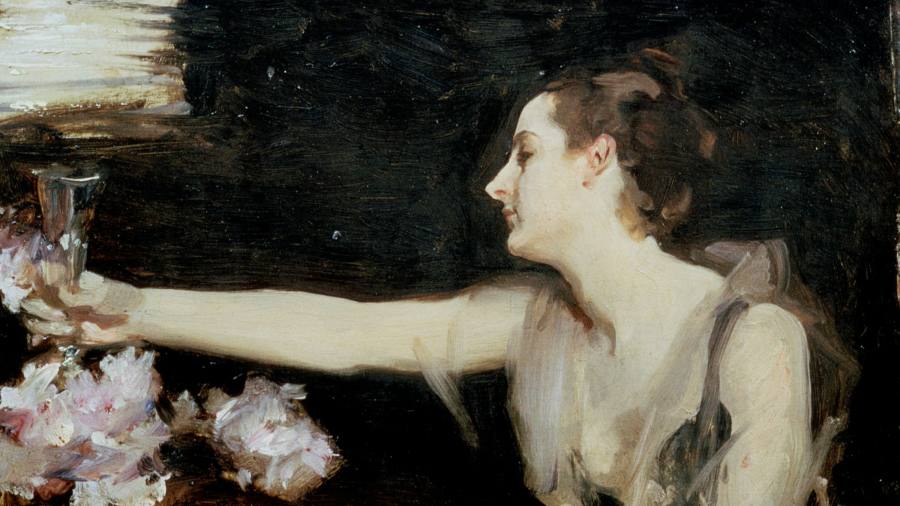[ad_1]
Do I have a drinking problem? I don’t think so. I’d say I was a fairly average drinker, if the average drinker is the kind of woman who fibs about her weekly unit intake when asked how much they drink by health professionals, and “enjoys†a glass or three with every evening meal.
My drinking isn’t that excessive: it seems in line with almost everyone I know. But it is considerable and it’s become heavier during the Covid crisis. No question, I have looked to alcohol to anaesthetise the grimness of everything that’s happening outside. And then I clicked on a Drinkaware self-assessment to discover that I am at an “increasing risk†of becoming alcohol dependent and decided it was really time to give the booze the swerve.
Along with some 6m other Britons, and many millions of others who take a similar pledge around the world, I did Dry January this year. I did it for whatever health benefits are supposed to come with not drinking. But mostly I did it to see if I could, in fact, stay dry. And I did it. This week’s deadline marks the longest period of sobriety I have maintained in adult life. (Even during pregnancy, I still gargled a fair bit of Pinot Noir.)
As with many who use the challenge to reset their relationship with alcohol, a month of abstinence was a welcome experiment to see if I could do without. But while I was relieved to find sobriety was still a choice over which I had full agency, I didn’t anticipate that four weeks without alcohol would find me feeling quite so crap. Where were the benefits I expected to come flowing? Where was my new energy and enthusiasm for the day? Instead, I discovered the fuzziness of mild inebriation was replaced by a slew of tension headaches (or were they migraines?), fresh anxiety and a string of sleepless nights.
Abstinence has not been the gateway to a better tomorrow. It’s merely illuminated the neuroses that squirrel round my head. Lying wide awake, again, at 3am, I wonder whether I wouldn’t be better off being drunk instead.
Except I don’t. Because that would be facetious. And hugely insulting to the millions of people who have found their dependence on alcohol, or other substances, becoming totally uncontrollable in the course of recent months. The pandemic has seen a spike in addiction that has rarely been seen before.
This week, the Office for National Statistics reported that deaths caused by alcohol during the first nine months of 2020 were 16 per cent greater than the same months in 2019. Alcoholics Anonymous experienced an increase in calls to their helpline and online services of more than 35 per cent in the first quarter (during lockdown) and a rise of 15 per cent in the second quarter compared to the same period last year.
Michael Rawlinson, treatment consultant at Clouds House, one of the UK’s oldest addiction charities and rehabilitation centres, is at the epicentre of the drinking crisis. But while the pandemic has seen a surge in admission queries, Covid-compliant protocols mean currently he has reduced capacity in beds. Furthermore, there’s a funding crisis: until a few years ago, state-funded places at Clouds used to make up 50-60 per cent of all admissions: today, that’s dropped to 20 per cent.
Rawlinson has got far greater concerns than to indulge the queries of a journalist who has discovered they probably don’t have a drinking problem. But he very generously offers up some wisdom about drinking (and, as it happens, drug use) that seems pertinent to all.
“The biggest frustration to me, is that instead of having conversations about why there are so many deaths due to alcohol, we should be talking about why it is that people use alcohol at all,†he says. “Most people use alcohol to change the way they feel. In moderation, it can make you feel better. Because it helps us with underlying feelings of anxiety. But a lot of the time we use alcohol because we’re not being honest with ourselves.â€
Alcohol can mask a lot of other issues — especially during a pandemic, when problems of job security, home schooling, isolation seem to have grown fourfold. Rawlinson, who counsels the 12-step abstinence programme at Clouds, argues that beating any dependency will only be successful when the addict has talked to other people about the underlying problems and worked towards the transformation of “our relationship with selfâ€.
We drink, often, because we lack the emotional maturity to face the challenges before us. Hence, any conversation that helps erode the stigma of addiction can only be a good thing. It’s good to talk about dependence — whether that’s via a light-hearted conversation about an annual challenge, or calling an action helpline and asking for specific help.
I haven’t had a drink yet. But that doesn’t mean I won’t. So far, I’ve been enjoying the self-control. No doubt that’s an “underlying problemâ€, but I don’t want to take another survey that suggests that I’m endangering my health. And maybe I’ve got to work out other ways to build up some emotional resistance. One thing I’ve learnt from Dry January is that sobriety doesn’t make the world less scary, my work less stressful or my loved ones any safer. Sobriety does not make reality less suck-y. It simply means you haven’t had a drink.
Jo Ellison is editor of the FT’s How to Spend It magazine
Email Jo at jo.ellison@ft.com
Follow @FTLifeArts on Twitter to find out about our latest stories first
Listen to our podcast, Culture Call, where FT editors and special guests discuss life and art in the time of coronavirus. Subscribe on Apple, Spotify, or wherever you listen
[ad_2]
Source link






